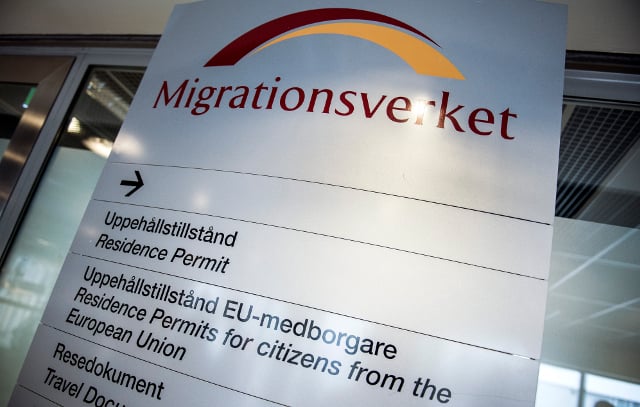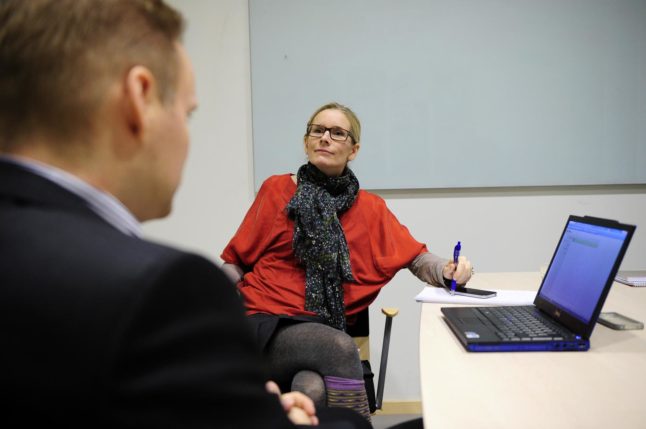That's what the Swedish Migration Agency states in a new legal position paper, outlining when a new work permit can be granted after an employee returns to their home country.
“Normally a new work permit may not be granted until seven years after the first one,” reads a statement referring to the paper, which is a document meant to help guide case officers in their decisions.
“The legislation states that a work permit may be granted for a total of four years. Following that period, the employee may apply for a permanent residence permit,” continues the statement.
“If the permit is not granted, the employee must return to their country of origin. If the employee wishes to reapply for a temporary work permit, they must wait seven years after having received their first one.”
This means that an international employee who has had a Swedish work permit for the past four years, but gets rejected when they apply to renew their permit and is therefore told to leave the country, will have to wait at least three years before being able to reapply for a new work permit in order to return to Sweden.
Sweden's strict legislation around work permits and long processing times have caused difficulties for hundreds of internationals working in Sweden, including employees and entrepreneurs.
Some of The Local's readers who were forced to leave Sweden have been able to return by applying from scratch for a new work permit; others have been told they need to wait longer before applying anew.
READ ALSO:
- Deported sales engineer told he can't return to Sweden
- Sweden 'cannot guarantee Brits' future' in event of no-deal Brexit
- What getting deported from Sweden (twice) taught me about life and business
Many have told The Local it is unclear how long they have to wait before they can come back to Sweden, and the Centre for Justice has previously accused the Migration Agency of applying an informal “six-month rule” which it argues is not supported by law or precedent, and putting workers in a “talent quarantine” abroad.
The centre's lawyers are currently appealing the case of Ali Omumi – an Iranian sales engineer who got deported from Sweden and then blocked from returning – to the Migration Court, whose judgment will address the same issues.
Fredrik Bergman, head of the Centre for Justice, did not wish to comment specifically on the Migration Agency's new legal position paper before analyzing it, but told The Local in general: “It is important that the Migration Agency's internal rules do not stop competent workers from coming to Sweden. It is also important that whose who have been wrongly expelled are not prevented from returning to work here.”
READ ALSO: What's the difference between being a resident and a citizen of Sweden?
The Migration Agency said it had issued the new instructions to clarify the rules for case officers.
“It does not say in the legislation or preparatory work if or when it should be possible to obtain a new work permit after having been granted temporary work permits for a maximum of four years and thereafter denied permanent residence permits,” a Migration Agency spokesperson told The Local.
“The legal position paper is the Migration Agency's interpretation of the rules and forms new legal support for how case officers and decision-makers should assess such cases.”
Sweden's strict rules are designed to stop workers from being exploited but have led to thousands of foreigners being forced to leave over minor paperwork errors. Many have also slammed the overly strict interpretation of the rules, and The Local's coverage of the issue has even sparked debate in parliament.
READ ALSO:
- What to do if your work permit renewal is rejected
- The Swedish word that explains the talent deportation debate
Sweden's government last year stopped working on a long-awaited new law to prevent talented international workers from being denied permits for minor administrative errors.
It justified this decision by arguing that a ruling from the Swedish Migration Court of Appeal now required the Migration Agency to look at the entirety of an individual's case when making decisions, meaning small administrative errors should not result in deportations.
But the bureaucratic regulations and long processing times are still causing difficulties for many of internationals working in Sweden, including employees and entrepreneurs. The Local's readers have called on Sweden to streamline the work visa process or introduce fast-track options for skilled workers.
READER VOICES:



 Please whitelist us to continue reading.
Please whitelist us to continue reading.
Member comments